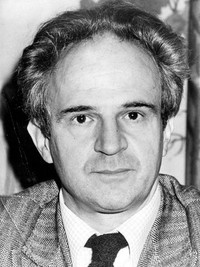François Truffaut

His academic demeanor and quiet professionalism masked a childhood scarred by abandonment and anger, but the films of François Truffaut - from his auspicious debut with "The 400 Blows" in 1959 to his stylish Hitchcock homage "Confidentially Yours" in 1983 - told the whole of the story through the protective prism of cinema. As a child, Truffaut took solace in the movie houses of Nazi-occupied Paris, where his psyche was sculpted by cinema. A high school dropout, he founded his own film society at the age of 16. Encouraged by film theorist André Bazin, Truffaut began contributing essays and reviews to the film magazine Cahiers du Cinéma, where he excoriated bourgeois French filmmakers while lauding certain Hollywood studio directors as true auteurs. Lauded at home alongside such other nouvelle vague figureheads as Jean-Luc Godard, Éric Rohmer, Claude Chabrol and Jacques Rivette, Truffaut was acclaimed also in the United States, where "Shoot the Piano Player" (1960), "Jules and Jim" (1962) and "Stolen Kisses" (1968) charmed American critics and art house audiences alike and where "Day for Night" (1973) and "The Story of Adele H." (1975) won Academy Awards. Truffaut's death from a brain tumor in 1984 robbed international cinema of one of its great practitioners, as well as a brilliant decoder of complex human emotions both writ large and up close and personal.